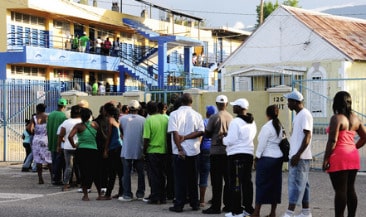The Electoral Commission of Jamaica (ECJ) has upgraded its biometric identification system.
The new automated biometric identification system (ABIS) will match voters’ fingerprints against a database to prevent vote duplication. The ECJ also said it has purchased handheld devices to scan prints at polling stations.
According to reporting by The Jamaica Observer, the commission acquired the ABIS to help ensure voters register just once.
It did not name the maker, but it’s reportedly Android-based hardware that also generates statistics and reports.
The Caribbean nation of 2 million people has been dogged by accusations of election fraud throughout its history.
Jamaica’s Political Ombudsman alleged that people were paid to vote in 2020, the practice being particularly widespread among younger voters.
The commission says it is planning the installation of so-called Livescan software in constituency offices across Jamaica to capture biometric data.
The Observer and other regional sources didn’t specify which company’s software will be used; many biometric software writers use the term Livescan, which typically refers to digital scans, in their product names.
The commission claims to have invested $684 million Jamaican dollars (US$4.44 million) over the past three years in digital infrastructure for electoral management.
The pilots for both the processes with mobile devices and fixed deployments at constituency offices are expected to start during this financial year.
Other countries in the global south reportedly have had success implementing biometrics to reduce election fraud.
In a discussion in digital journal The Conversation, political scientist Abiodun Fatai argued that Nigeria’s biometric voter accreditation system (BVAS) improved the credibility of Nigeria’s most recent presidential election by reducing multiple voter registration.
Article: Jamaica invests in biometrics to fight election fraud
